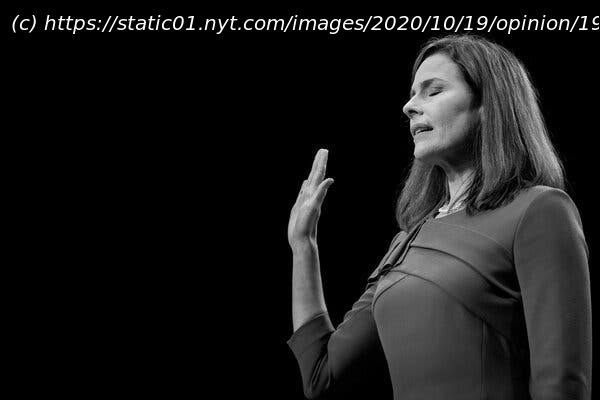If confirmed, she may soon have to reconcile her Catholic morality and the law over a death penalty case.
After two decades on death row, Ruben Gutierrez’s time nearly came this summer. A little over an hour before he was due to be killed in the execution chamber housed in Texas’ Huntsville Unit, a reprieve arrived from an unlikely source: Justice Samuel Alito. For years, Mr. Gutierrez has maintained that he did not murder Escolastica Harrison, an 85-year-old widow and trailer park owner he and an accomplice robbed in 1998, though he confessed to being present at the woman’s residence during the botched burglary in which Ms. Harrison was stabbed and beaten to death. But the question of his guilt was not what led to the temporary stay of execution. Instead, Mr. Gutierrez was granted a little more time on earth so that the courts could decide whether his religious liberty had been unduly infringed on by a 2019 state regulation banning clergy in the execution chamber. Mr. Gutierrez, a Catholic, had wanted a Christian chaplain with him at the moment of death; the Texas Department of Criminal Justice had denied his request, and his lawyers had appealed all the way to the Supreme Court. There, Justice Alito saw enough merit in the complaint to halt the impending execution so the courts could decide whether to settle the question. As it stands, the Supreme Court is considering Mr. Gutierrez’s case, and could accept or reject it in the immediate future. If the matter does go before the court — which Mr. Gutierrez’s lawyers consider a decent possibility — it is likewise probable that Amy Coney Barrett will have a hand in deciding his fate. If so, Judge Barrett will find herself in an onerous tangle of principles and expectations. Judge Barrett is — like Mr. Gutierrez and myself — a devoted Catholic, and she has evinced a serious, thoughtful concern about how the morality of her faith ought to interact with the application of the law — specifically with regard to capital punishment. And, if any doubt had remained about the attitude Catholics ought to adopt toward capital punishment, it was removed this month in a propitiously timed encyclical published by Pope Francis, who thoroughly opposes the practice. Considering the strange particulars of Mr. Gutierrez’s case and the radical demands of the Christian faith, what then must we do? *** Shawn Nolan was brought up Catholic; that’s part of what motivated him to go into public defense. “I’ve always thought of my job as — I represent the poor, and that’s, I think, consistent with my Catholic upbringing,” he told me during an October phone interview. Mr. Nolan took up Mr. Gutierrez’s case two years ago and has worked tirelessly to save his client’s life. Several of Mr. Nolan’s clients have been put to death despite his best efforts, but it wasn’t until this summer that he witnessed an execution in person. “It was very surreal,” he recalled. “Pentobarbital causes flash pulmonary edema, which is incredibly painful,” he said, but his client, Dustin Lee Honken, appeared to be unconscious — though Mr. Nolan wasn’t certain if he was unaware or merely paralyzed. “I couldn’t tell if he was suffering terribly,” he told me, “It’s a sensation of drowning, is what they described it as, the experts that have talked about this. And so, I couldn’t tell. I’m just sitting there watching, nothing I can do about it at that point. Our litigation was all lost.” There’s something nightmarish, too, about the state of Mr. Gutierrez’s case, and the threads that hold his life in the balance. Before April 2019, Texas had allowed state-employed chaplains in the execution chamber.






